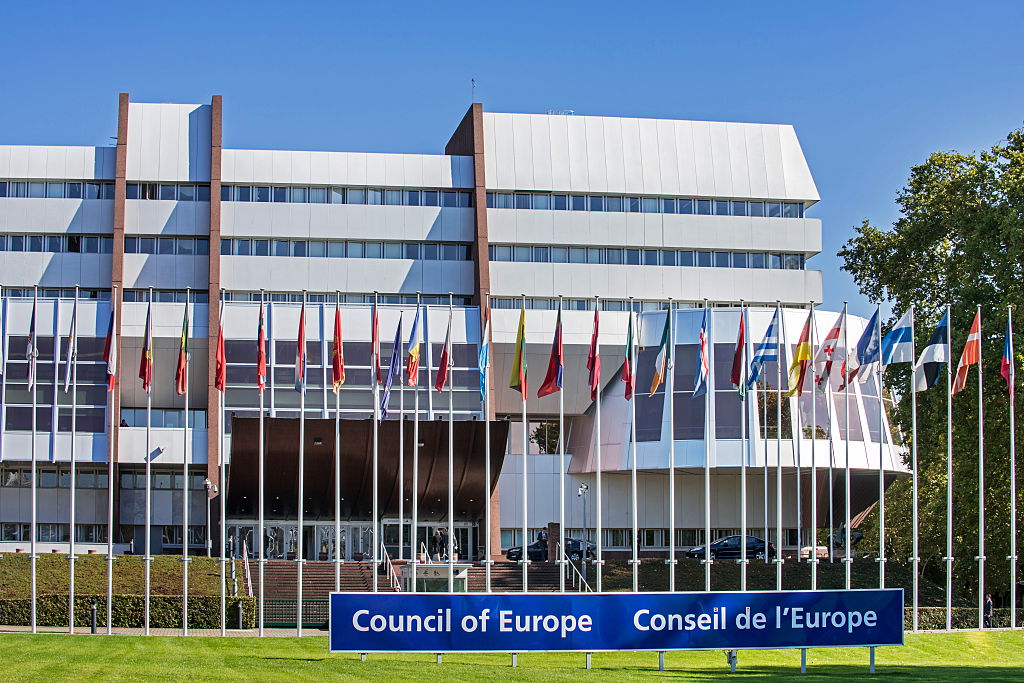Amid rising Islamophobia in Europe, amplified by politicians using anti-Muslim rhetoric, parliamentarians from 46 countries will vote in a plenary session of the Parliamentary Assembly of the Council of Europe (PACE) on a resolution that accuses authorities in several European states of normalizing discrimination against Muslims and calls for state action to address Islamophobia as a form of racism.
Amnesty International’s research and recommendations are among the sources that informed the PACE report on which the resolution is based.
Ahead of the debate and vote on 11 October 2022, Nils Muižnieks, Amnesty International’s Regional Director for Europe, said:
This resolution should be a wake-up call. Racist laws, policies and practices have no place in Europe. Hate crimes against Muslims and those perceived as being of Muslim faith are too often not officially recorded or effectively investigated. The surveillance of Muslim men, women and even children is readily accepted as normal practice, and a range of counter terrorism measures are operating outside criminal justice systems, without adequate safeguards
Nils Muižnieks, Amnesty International’s Regional Director for Europe
“This resolution should be a wake-up call. Racist laws, policies and practices have no place in Europe. Hate crimes against Muslims and those perceived as being of Muslim faith are too often not officially recorded or effectively investigated. The surveillance of Muslim men, women and even children is readily accepted as normal practice, and a range of counter terrorism measures are operating outside criminal justice systems, without adequate safeguards.
“The everyday intolerance, bias and discrimination that many Muslims experience is a form of racism. Muslim women are disproportionately affected, as they face discrimination on multiple grounds. Very often their access to public places is restricted through policies and practices that are based on harmful gender stereotypes. Various laws across Europe prohibit Muslim women to wear religious symbols and dress at the workplace, in schools and in public generally. Policy makers must stop using racist and discriminatory rhetoric against Muslims and immediately take action to ensure that they can enjoy their fundamental rights to equality and dignity, and live their lives without discrimination.
“When fear mongering politicians are demonizing Muslims to win votes, it is more important than ever for Muslim communities to have a voice at the table. Yet we are witnessing situations where organizations simply advocating for the protection of Muslims’ human rights are treated with suspicion and prevented from participating in public life, or even dissolved, often on spurious security grounds. Protecting national security does not justify disproportionate and unnecessary restrictions of human rights.”
Background
It is expected that there will be a majority in favour of the resolution in the plenary session of the Parliamentary Assembly of the Council of Europe (PACE), following the unanimous adoption of the related report within the Assembly’s Committee on Equality and Non-Discrimination.
On 1 June 2022, Amnesty International submitted to the PACE Committee on Equality and Non-Discrimination a regional overview of Islamophobia in Europe, documenting how a number of states have “racialized” Muslims and those perceived to be Muslim and subjected them to a range of discriminatory and racist laws, policies and practices.
As described in the Council of Europe’s new report, this process of “racialization” leads Muslims to be perceived as a separate ethnic group “based on various markers that include ethnic or national origin, appearance and cultural characteristics, and may overlap with anti-immigrant sentiments, xenophobia and social class bias”.
The PACE report and resolution highlight that any acknowledgement of the issues faced by Muslims must be followed by action in the form of national anti-Islamophobia action plans. It includes concrete recommendations to Council of Europe member states.


